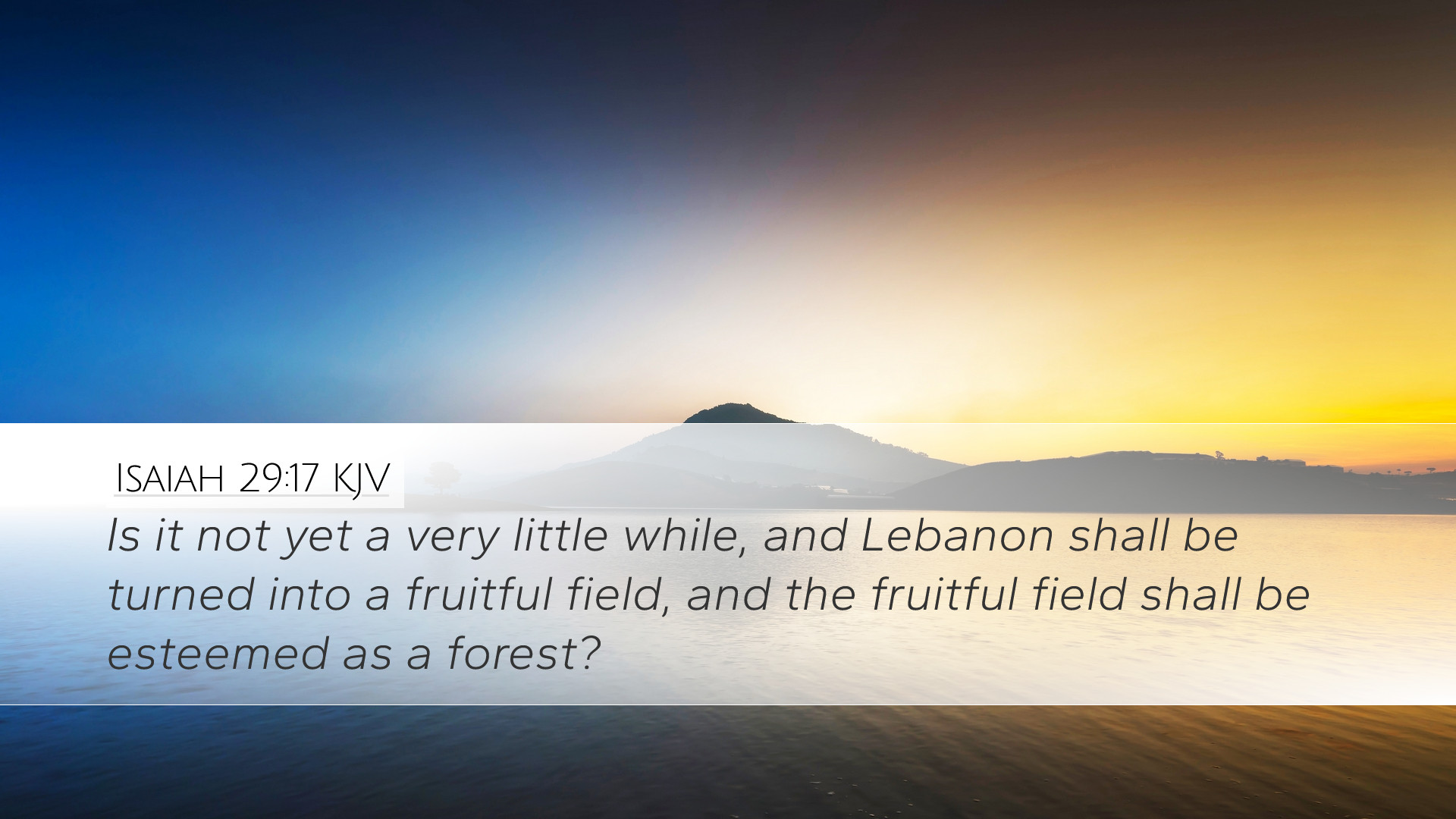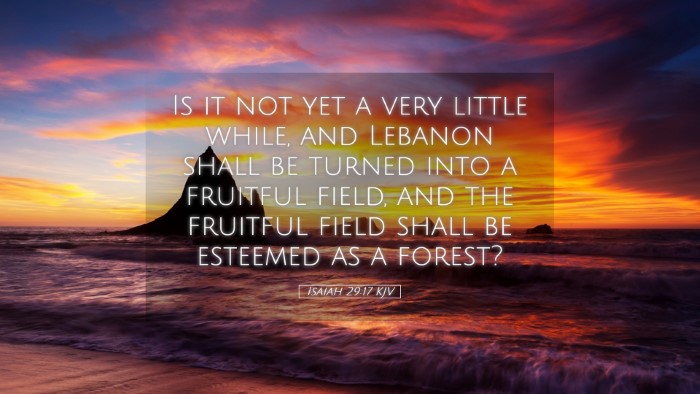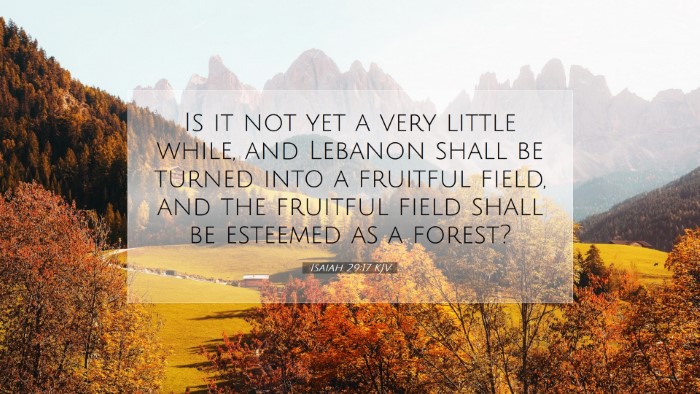Commentary on Isaiah 29:17
Verse Text: "Is it not yet a very little while, and Lebanon shall be turned into a fruitful field, and the fruitful field shall be esteemed as a forest?" (Isaiah 29:17, KJV)
Introduction
The prophecy in Isaiah 29:17 speaks to the transformative power of God, as well as His ability to turn barrenness into abundance. This verse encapsulates themes of hope, restoration, and divine intervention, making it a significant text for pastoral discussions and theological study.
Contextual Analysis
This verse is situated within a larger context where Isaiah addresses the people of Jerusalem and their spiritual condition. The preceding chapters deal with the consequences of disobedience and the promise of impending judgment, yet this verse provides a glimmer of hope. Here are critical aspects of the surrounding context:
- The Condition of the People: Israel's disobedience had led to spiritual blindness and moral decay (Isaiah 29:10).
- God's Judgment: The previous verses warn of judgment, indicating a nation that has lost its way.
- Promise of Restoration: Despite the dire circumstances, God promises a reversal that will bring life and fullness (Isaiah 29:18-24).
Matthew Henry's Commentary
Matthew Henry elaborates on the contrast presented in this verse. He interprets Lebanon, which is known for its grandeur and strength, representing human pride and self-sufficiency. In contrast, a fruitful field indicates blessing and prosperity.
Henry emphasizes the biblical principle of divine substitution—where God often uses the weakest instruments to achieve His purposes. The idea that Lebanon will become like a fruitful field speaks to God’s sovereignty over nature and His ability to alter the very status quo for His people.
Albert Barnes's Commentary
Albert Barnes focuses on the metaphorical dimensions of the verse. He explains how the transformation of Lebanon into a fruitful field symbolizes the radical change that God can bring about in the lives of His people. In Barnes's view, this represents both a physical and spiritual revival.
He suggests that the 'fruitful field' corresponds to the Church of God and the gospel's effect on the world. Barnes underscores the importance of these promises not just for the immediate audience but for all believers who witness the fulfillment of God's word.
Adam Clarke's Commentary
Adam Clarke provides a detailed exegesis of the phrase "a very little while." He points out that the timing of God’s deliverance may often seem delayed to humanity. However, Clarke assures that this delay is not a denial but rather a part of the divine plan.
He highlights the biblical motif of expectation: God often calls His people to wait in faith for His promises to unfold. Clarke's analysis brings forth the practical application for believers today, prompting them to trust in God's timing, irrespective of the circumstances.
Theological Themes
- Transformation: The essence of Isaiah 29:17 speaks of transformation not only in a literal sense but also spiritually.
- Hope and Restoration: This verse serves as a reminder of God’s omnipotent ability to restore His people from desolation.
- Faith and Expectation: It emphasizes the importance of waiting faithfully on the Lord for fulfilling His promises.
Practical Applications
The implications of Isaiah 29:17 extend far beyond its historical context. For pastors and teachers, this text provides a rich foundation for preaching and teaching about hope in desperate times. Here are several practical applications:
- Encouragement in Trials: This verse can serve as an encouragement for congregants experiencing personal challenges; it speaks to God’s power to bring good out of bad situations.
- Faith in Divine Timing: Reminding believers that God's timing transcends human understanding fosters patience and trust.
- Call to Expectation: As God transformed Lebanon, believers are called to expect God to work in their lives and communities.
Conclusion
Isaiah 29:17 stands as a powerful reminder of God's ability to transform the barren into a bounteous harvest. Through insights from reputable public domain exegetes like Matthew Henry, Albert Barnes, and Adam Clarke, we see a multifaceted understanding of this verse. It invites believers to reflect on hope, restoration, and the magnificent changes God can accomplish, calling upon them to embrace faith in His promises.


